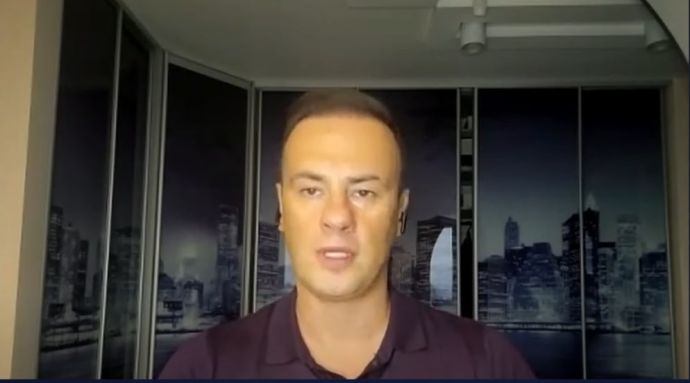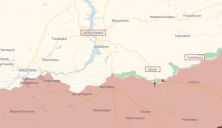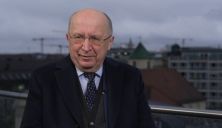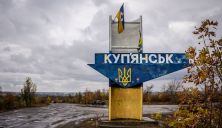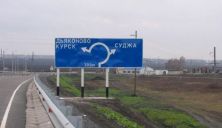The “friends of Putin” group of countris are extremely dependent on Russian energy resources and therefore play in hand with Russia’s external information policy, making scandalous anti-Ukrainian and anti-European statements. What are the inner reasons for such behaviour – watch in our interview with IR expert Maxym Yali.
— The visit of Prime Minister Fico, the Prime Minister of Slovakia, to Ukraine and his conversation with Ukrainian Prime Minister Denys Shmyhal – we have heard extreme claims and statements from Robert Fico that he will block Ukraine’s access to NATO accession, and that he is going to restore normal cooperation with Russia as soon as possible. Why do you think such statements are made?
— Well, actually, nothing new – at least for experts. We should consider that Mr. Fico makes such statements not towards Ukraine or the Ukrainian Prime Minister, but towards his own audience in Slovakia, to his voters. He is essentially repeating the statements and slogans from his campaign during parliamentary elections, after which he became Prime Minister of Slovakia.
But when it comes to real negotiations and high-level meetings with Ukrainian officials, his position tends to change, and the statements become much smoother, as it was last time. I’m sure it will be the same this time after the meeting is over. We should understand this political dynamic and not take it too seriously, as there is a clear distinction between public statements for political reasons and real negotiations.
Moreover, Ukraine has significant leverage over Slovakia, especially in the energy sector, since almost all the gas Slovakia imports comes from Russia via Ukrainian territory. This will undoubtedly be a central topic of their negotiations.
— Slovakia and Hungary are Ukraine’s neighbors. These countries have a long history with Ukraine. Could you explain why leaders like Fico and Orban are often called “friends of Putin in Europe” and why they seem to lobby Russian interests, putting them in conflict with Brussels?
— It’s about national interests and the way these leaders view them. It’s also about economics. As you mentioned, Hungary’s Prime Minister Viktor Orban, not just Fico, often makes similar statements and even goes further by blocking cooperation between Ukraine and NATO, preventing Western weapons from passing through Hungary to Ukraine, among other things.
The common factor uniting them is their dependence on Russian gas and oil. Over 70% of the gas and oil they import comes from Russia at much lower prices compared to European or alternative sources. They benefit from these deals, and Moscow is willing to offer discounts to countries that help avoid sanctions or otherwise assist its interests.
This isn’t new. Russia has historically used energy as a political tool, even towards Ukraine. We can recall when former Ukrainian President Yanukovych extended the agreement for the Russian fleet’s presence in Crimea for 25 years in 2010 in exchange for a 30% discount on Russian gas. This is the same policy we’re seeing now, used by the Kremlin to influence its neighbors and partners, especially in Europe.
— We also have examples like Croatia and Slovenia, small EU countries that don’t depend on Russian energy. Ukraine has had no issues with them regarding European or NATO integration. Could we see a shift in how the EU addresses these issues in the future?
— Indeed, countries like Croatia and Slovenia are closer to us because they fought for their own independence from Imperial Serbia. They understand the struggle against imperial ambitions, which is why they support Ukraine both financially and militarily.
On the other hand, Hungary and Slovakia were once under the geopolitical influence of the USSR, and while some countries, like the Czech Republic, have learned from their history and support Ukraine, others, like Hungary, seem to have forgotten the lessons of the past. Despite the 1956 Soviet invasion of Hungary, human memory is short, and the generations that lived through those events have mostly passed on.
However, I believe the EU has significant leverage over these states, as both Hungary and Slovakia are net recipients of EU funds. Decisions like the recent approval of 50 billion euros in aid to Ukraine show how these mechanisms work. Hungary’s Orban, who tried to block the decision, ultimately left the room during the vote, allowing the decision to pass.
This shows that, when necessary, solutions can be found, often under pressure from larger EU economies like Germany.
There is already talk in Europe and NATO of changing the consensus principle, which allows small countries to block major decisions. The move towards majority decision-making is gaining traction, and I believe that, in time, the EU will find ways to deal with these internal challenges.
Read also: Ukraine in Nato – in Part or in Full? Interview with Maksym Dzhyhun

